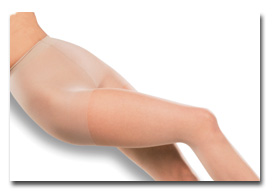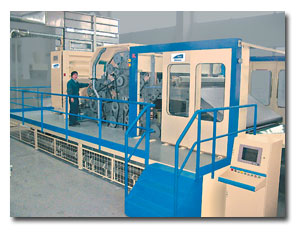J
ames W. Chesnutt, chairman, American Textile Manufacturers Institute (ATMI), has been
very vocal in opposition to the proposed agreement. In fact, ATMI predicts passage of this
agreement will cost thousands of jobs in the yarn sector. Chesnutt has indicated the defeat of
CAFTA will be a major objective for the industry this year.
Other major trade organizations including the National Textile Association and the American
Manufacturing Trade Action Coalition also have voiced their opposition. Again, the major concerns
revolve around the cumulation rules of origin and TPLs that will allow CAFTA countries to buy yarn
from Mexican, Canadian and Asian countries and export duty-free finished goods manufactured from
these yarns to the United States.
Mixed Feelings On Business
Yarn prices seem to be holding relatively steady from the previous reporting period. As one
major spinner said, “Our business isn’t where we want it; however, it has picked up substantially
in the last month.”
Another spinner added, “Some of our customers are beginning to realize that they had better
not put all their eggs in one basket — so we are beginning to get some orders from folks we haven’t
heard from in a while.”
Textile manufacturers are hoping their business may follow the same trend as other
manufacturing sectors. A survey released by the Institute for Supply Management indicated
manufacturing orders rose faster in December than in any previous period in recent history. At the
same time, low interest rates have fueled record-setting construction activity, according to a
report from the US Department of Commerce. In fact, residential construction, which has tremendous
implications for the textile industry, has hit an all-time record rate of close to $500 billion.
Job Growth?
On the other hand, the US economy added only 1,000 jobs during December, according to data
from the US Department of Labor. Although the unemployment rate dropped to 5.7 percent for
December, the fall in unemployment actually was the result of 309,000 people giving up their job
searches and dropping out of the labor force.
As one textile executive said: “We keep hearing about this jobless recovery. How can there
be a recovery if people don’t have the jobs to sustain it?”
Another executive said: “The administration thinks you build a recovery around tax cuts and
people refinancing their homes. The only way to have real recovery is by having fair trade policies
that will put people in manufacturing back to work.”
It has to be disappointing that, while manufacturing orders are up, this sector of the US
economy gave up another 26,000 jobs in December.
February 2004

 The Performance Fabrics Division of Consoltex Inc., headquartered in Quebec, has developed
The Performance Fabrics Division of Consoltex Inc., headquartered in Quebec, has developed





